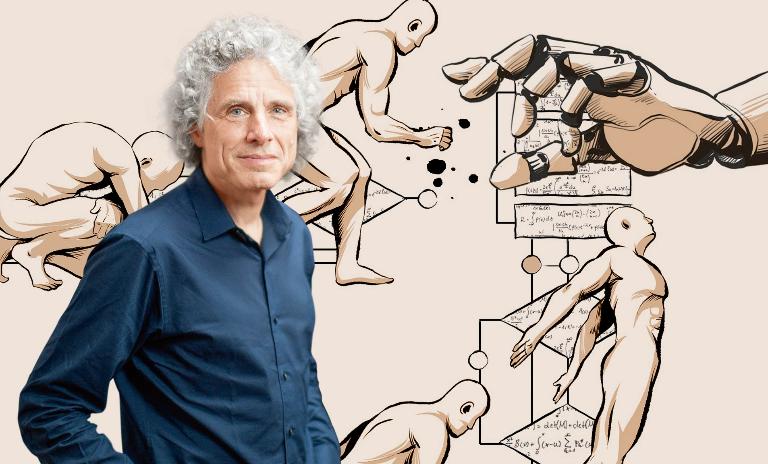Your path to tomorrow, today
![{[downloads[language].preview]}](https://www.rolandberger.com/publications/publication_image/tam_future_cover_en_download_preview.jpg)
The actions of the present lay the foundations for the future. What does this saying mean in turbulent times? Consider a mix of solidity and flexibility!


Experimental psychologist and social researcher Steven Pinker thinks it's time we revisit the ideals of the Enlightenment. Here he answers three questions concerning humanity's long-term advancement.
The state of global affairs has some feeling like we are entering humanity's end days. In his new book "Enlightenment Now", Pinker details why this thinking is incorrect and why now more than ever we must all vigilantly defend the values of reason, science and humanism.
Our decisions will be more based on reality. Any judgement under uncertainty is fallible, but human intuition is a low bar – one of the most robust findings in psychology is that humans predict outcomes less accurately than even simple algorithms.
In most ways, yes. We are healthier and longer-lived. We are better educated, less poor, more peaceful and more democratic. We are safer, less sexist and less racist, better socially connected and have greater access to knowledge and culture.
They can, although that does not mean they will – they need a constant defense against the darker side of human nature, with its tribalism, authoritarianism, magical thinking and zero-sum mindset. Gut instincts are fine for personal tastes, but for business and political policies, and for living a wise and satisfying life, reason is superior. That, perhaps, is the most important lesson of the Enlightenment.

![{[downloads[language].preview]}](https://www.rolandberger.com/publications/publication_image/tam_future_cover_en_download_preview.jpg)
The actions of the present lay the foundations for the future. What does this saying mean in turbulent times? Consider a mix of solidity and flexibility!
Curious about the contents of our newest Think:Act magazine? Receive your very own copy by signing up now! Subscribe here to receive our Think:Act magazine and the latest news from Roland Berger.

